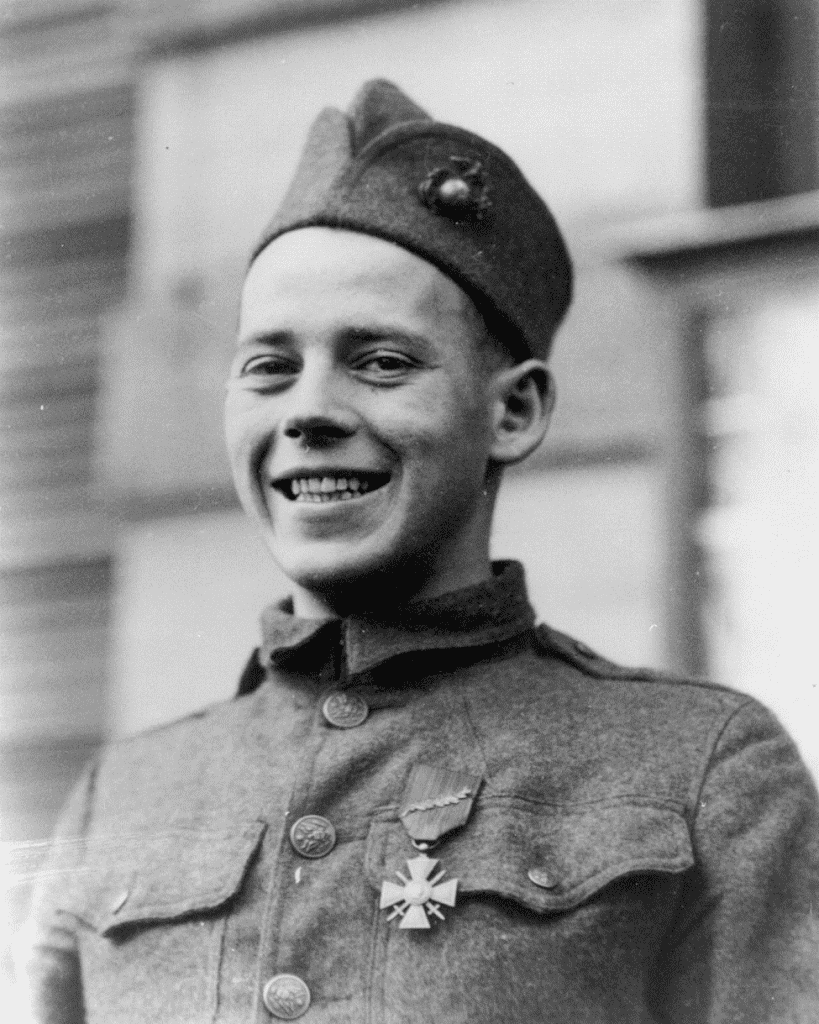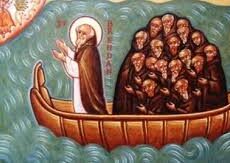
The 6th Marine Regiment moved out to attack the German positions at Mont Blanc in France on 6 October 1918 just a month before the end of World War I. The Marines were a part of the Army’s 2nd Division. Mont Blanc was a miserable place called so because the chalk soil in the region made it hot and barren with little vegetation and no cover for either side. As the Marine line moved forward one Marine could be seen moving ahead of the others and got so far ahead that he was soon moving through the friendly artillery barrage on the German positions. His target was soon in sight: a German machine gun position that could wreak havoc on the advancing marine line. The Marine destroyed the position with a grenade, killed the last gunner with his pistol and captured eight other Germans. As the Marines overran the German position, they were amazed to see a single Marine marching eight prisoners in the other direction back to the Allied lines.
The Marine’s name was Private John Joseph Kelly from Chicago. His parents emigrated from Ireland, County Sligo to America in 1885. He was born in 1898 and enlisted in the Marines when the U. S. entered the war in 1917. On a chilly day after the war General John Pershing arrived at an awards ceremony where several generals and other senior officers were assembled to receive various awards. They would have to wait. General Pershing addressed the audience and presented the Medal of Honor to Private Kelly, not one, but two! This occurred because Kelly was a Marine assigned to an army division. This is the only time that a service member received two Medals of Honor for that same action. Kelly received other valor awards including Silver Stars and foreign awards. He also received two purple hearts. There was a down side to Kelly’s career in the USMC. He was court-martial for telling his commanding officer what he could do with his orders. In spite of this punishment, he received the Good Conduct Medal for his service in the Marine Corps. Kelly packed a lot of events into a very short Marine Corps career.
Kelly was discharged from the Marines on 14 August 1919 and returned home to Chicago. Things did not go well for him. He got into trouble with police and later described himself as an alcoholic. He was quoted as saying that alcohol killed his tuberculosis. Finally, he got into local politics and things straightened out. He also got married and settled down. Kelly died in Chicago on 20 November 1957. He was the last surviving member of the Armed Forces with two Medals of Honor. There have been none since.
Mike Eggleston


